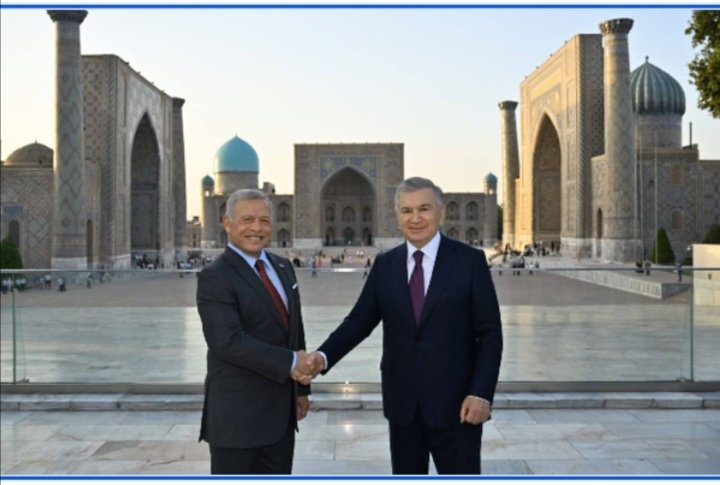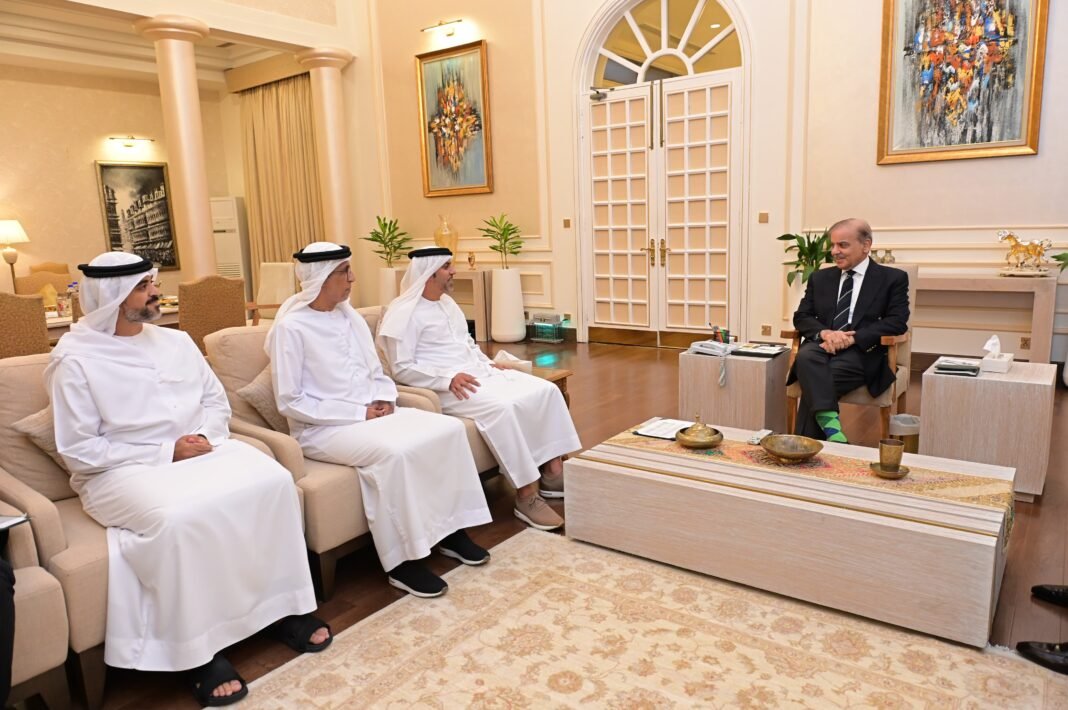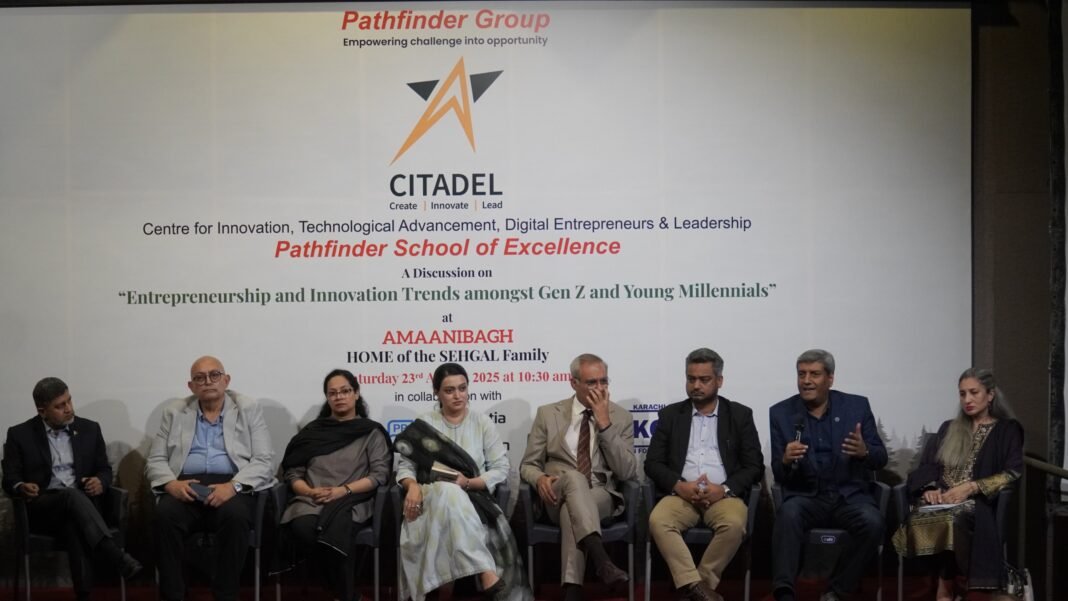
Uzbekistan-Jordan: Towards New Horizons of Cooperation
Tashkent : At the invitation of the President of the Republic of Uzbekistan Shavkat Mirziyoyev, King Abdullah II ibn Al Hussein of the Hashemite Kingdom of Jordan arrived in our country on August 25 with a state visit.
Diplomatic relations between the Republic of Uzbekistan and the Hashemite Kingdom of Jordan were established in February 1993. Over the past decades, they have evolved from formal contacts to comprehensive cooperation encompassing politics, the economy, and cultural-humanitarian spheres.
In June 1994, the Embassy of Jordan opened in Tashkent. Currently, the Ambassador of Uzbekistan, resident in Riyadh, is concurrently accredited in Amman.
In addition, since August 2007, the institution of the Honorary Consul of Uzbekistan in Jordan has been in operation, held by Jordanian citizen Luay Abu-Ghazaleh.
Since the establishment of diplomatic relations, political dialogue between Uzbekistan and Jordan at the highest level has been conducted mainly through meetings on international platforms, telephone conversations, official messages, and occasional high-level visits.
In recent years, bilateral ties have gained new momentum. Both sides demonstrate a clear commitment to expanding and deepening cooperation, relying on significant potential for mutual benefit.
In 2025, a representative delegation of Uzbekistan headed by Foreign Minister Bakhtiyor Saidov visited Amman, during which President Shavkat Mirziyoyev’s personal message and greetings were conveyed to King Abdullah II. The delegation was received by King Abdullah II of Jordan, held talks with Deputy Prime Minister and Minister of Foreign Affairs Ayman Safadi, as well as meetings with representatives of the ministries of investment, higher education, awqaf, Islamic affairs and holy sites, and major companies.
One of the significant outcomes was the signing of an agreement on the abolition of the visa regime for holders of diplomatic passports, as well as the Joint Program of Cooperation between the foreign ministries for 2025-2027. These steps reflect the mutual intention to give relations a systemic character and bring them to a new level.
Uzbekistan, in general, pursues a policy of openness and multi-vector diplomacy. In recent years, Tashkent has actively developed cooperation with Middle Eastern countries, as reflected, in particular, in the almost fivefold increase in trade with the Gulf Cooperation Council (GCC) states during 2020-2023. Uzbekistan’s participation in multilateral formats such as the Organization of Islamic Cooperation (OIC), the Economic Cooperation Organization (ECO), and other international associations provides an additional platform for deepening Uzbek–Jordanian interaction.
Economic cooperation between Uzbekistan and Jordan remains at a relatively modest level; however, both sides have already outlined a strategy to intensify it. In 2024, bilateral trade turnover amounted to about USD 4.6 million. Jordan exports pharmaceuticals, chemical products, equipment, and machinery to Uzbekistan, while Uzbekistan exports copper, dried fruits, nuts, and textiles.
Talks between the ministers of investment, industry, and trade of the two countries in 2025 confirmed readiness to expand the partnership. Among the key areas are the signing of a Preferential Trade Agreement to facilitate mutual market access, cooperation in the mining sector, including the extraction and processing of phosphates, copper, and other minerals, strengthening ties in agriculture and food industries, and implementing joint projects in pharmaceuticals, textiles, light industry, and the digital economy.
Of particular importance is the intention to establish the Uzbekistan–Jordan Business Council, which will facilitate direct contacts between entrepreneurs, organize sectoral exhibitions, business forums, and trade missions. Jordan also proposes to use its advantageous geographical location as a hub for Uzbek goods to enter Middle Eastern and North African markets.
Relations between Uzbekistan and Jordan are built on a profound spiritual foundation. Both states are united by Islamic culture, common historical heritage, and centuries-old traditions of religious and cultural exchange. This creates an atmosphere of trust and mutual understanding, which is especially important for the humanitarian dimension of bilateral relations.
Promising areas of cultural and humanitarian cooperation include expanding academic exchanges, joint educational programs and scholarships for students, organizing cultural festivals, exhibitions, and conferences dedicated to shared historical and cultural heritage, cooperation in Islamic studies, theology, history, and archaeology, as well as experience-sharing in healthcare, including joint medical programs, training, and telemedicine.
The closeness of spiritual values provides a solid basis for long-term partnership, where cultural exchange becomes an integral part of overall development.
In recent years, Jordanian representatives have actively participated in cultural events held in Uzbekistan, including the International Maqom Art Festival (September 2018, Shahrisabz) and the International Handicraft Festival (September 2019, Kokand).
Undoubtedly, Uzbekistan and Jordan are capable of building a mutually beneficial partnership based on trust, shared cultural values, and complementary economic potential. The implementation of the outlined initiatives will not only deepen cooperation but also transform it into an important factor of stability and development across the Middle East and Central Asia.
In this context, the forthcoming visit of the King of Jordan to Uzbekistan will open new horizons for the intensification of bilateral cooperation. The political will of both sides, supported by concrete agreements, will create conditions for growth in trade, implementation of investment projects, and strengthening of humanitarian ties.
Sohail Majeed is a Special Correspondent at The Diplomatic Insight. He has twelve plus years of experience in journalism & reporting. He covers International Affairs, Diplomacy, UN, Sports, Climate Change, Economy, Technology, and Health.





![logo-1[1]](https://globalnewspakistan.com/wp-content/uploads/2025/01/logo-11-e1737618310315-300x187.png)